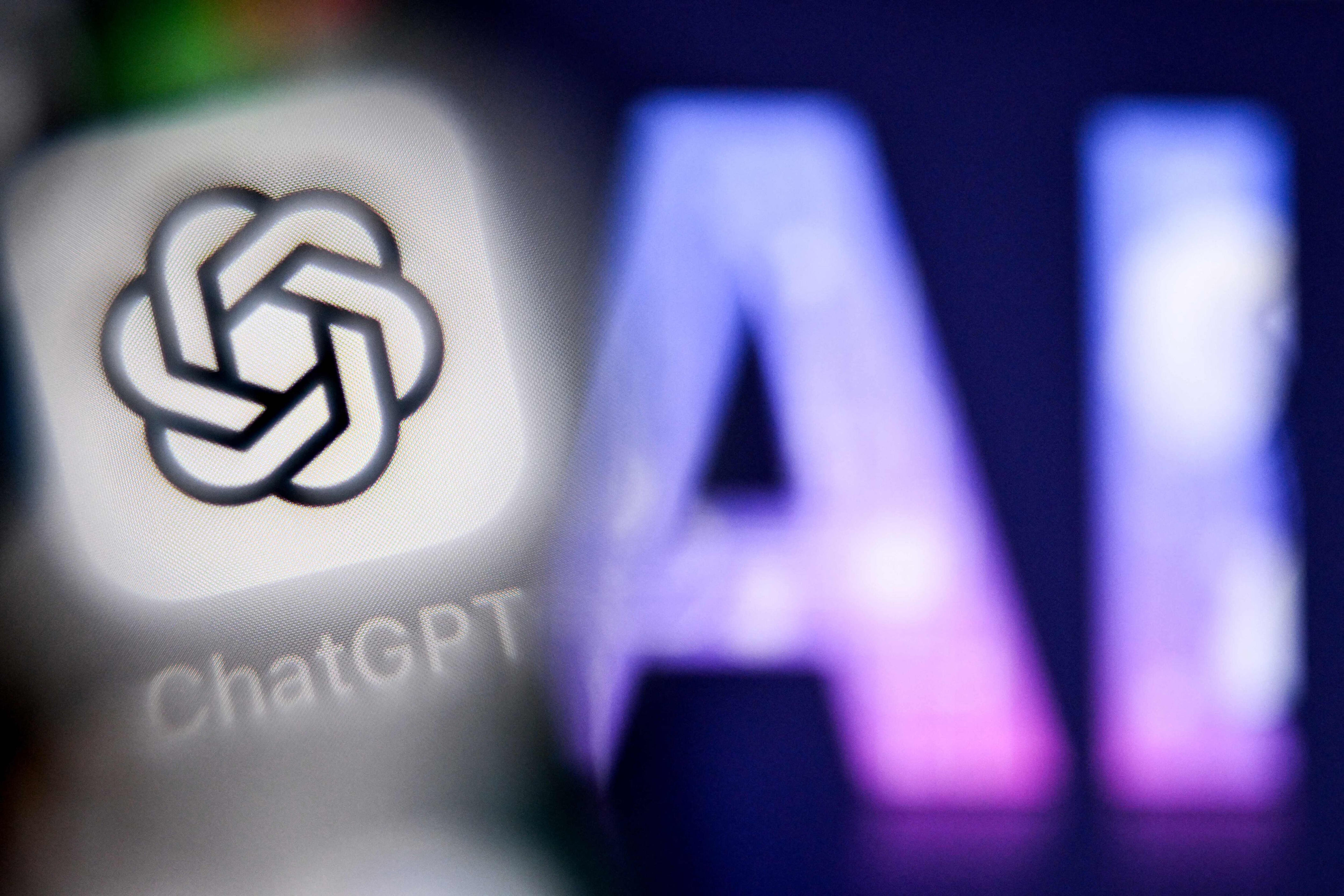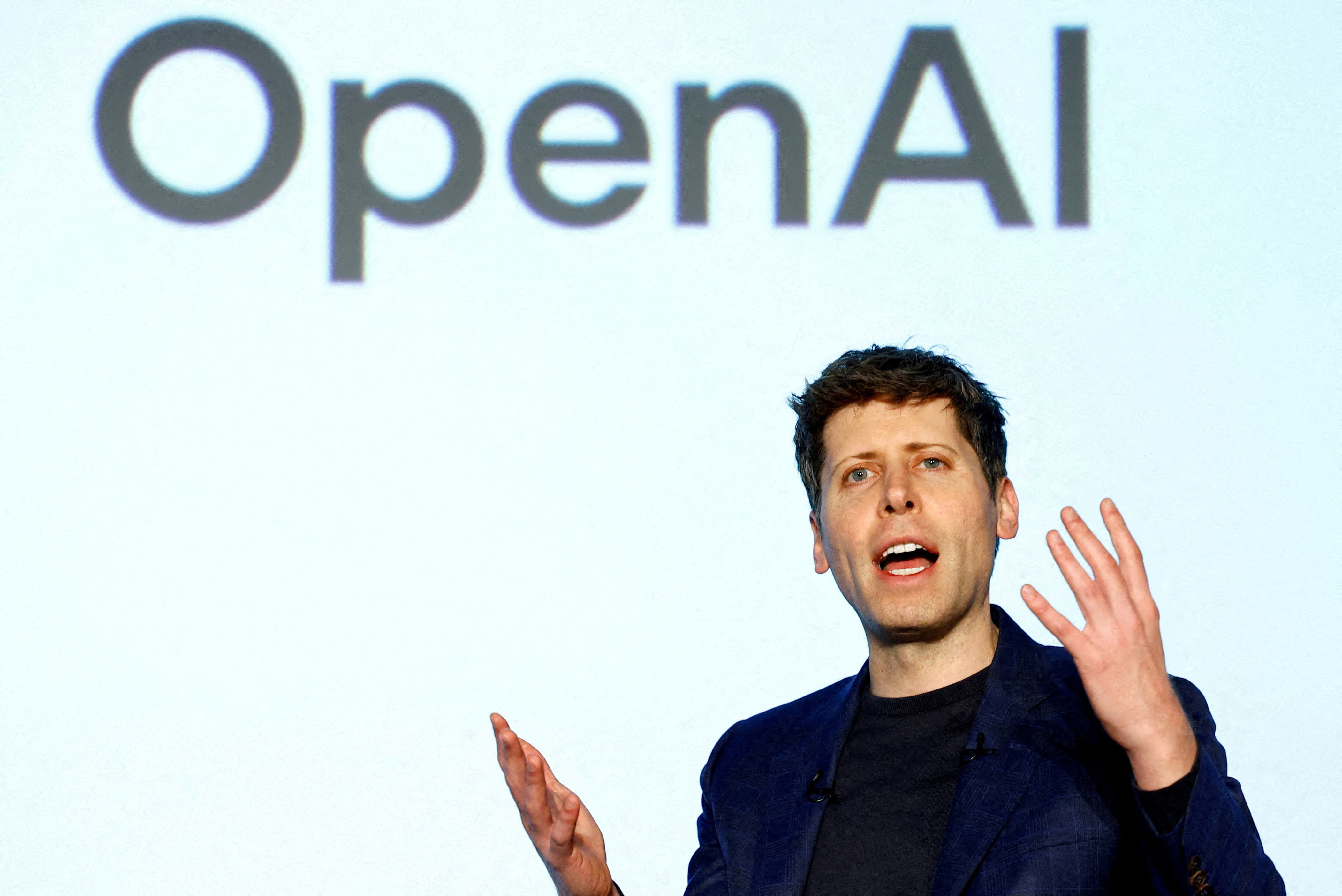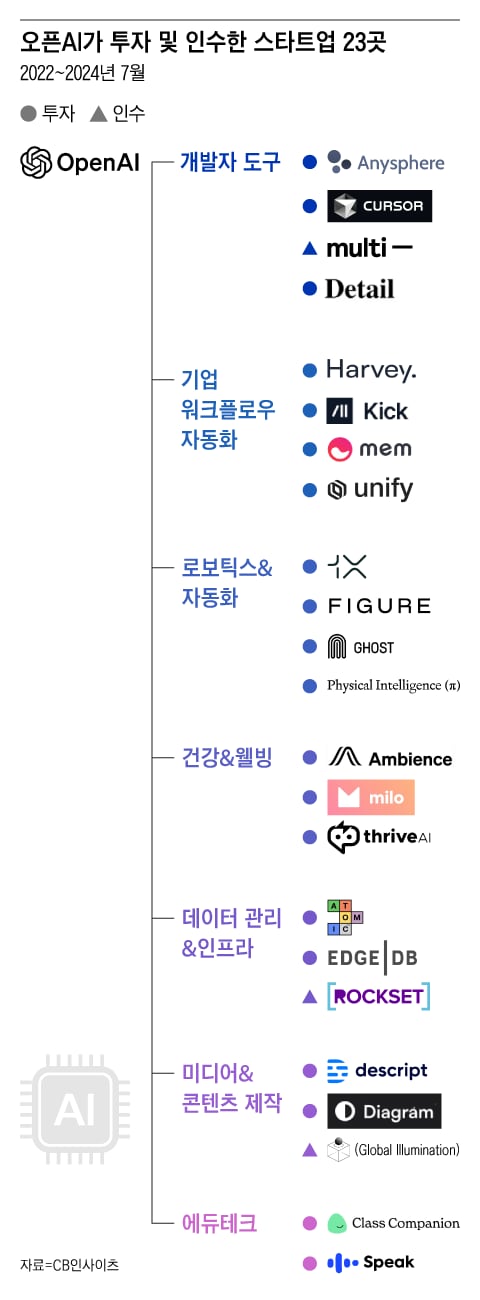OpenAI diversifies with AI job platform entry

OpenAI has announced its entry into the job platform market, expanding its business beyond the AI chatbot ChatGPT in a sprawling diversification strategy. Leveraging its powerful AI capabilities, the company aims to provide personalized services and generate revenue in sectors such as web search, recruitment platforms, and healthcare. As OpenAI pushes to transition into a fully profit-driven entity, it is aggressively entering new business areas and pouring investments into related startups.
According to CB Insights, OpenAI invested in or acquired 23 startups between 2022 and July 2024. Since then, it has added four more acquisitions and Acquire+Hire (acquisitions aimed at talent recruitment). A tech industry insider noted, “OpenAI is preparing to influence the broader IT services sector beyond just AI. Its aggressive diversification poses a significant threat to other tech companies as AI reshapes existing service models.”
On the 4th (local time), at a White House task force meeting on “AI and Education” hosted by Melania Trump, OpenAI revealed plans to create a “second LinkedIn” using AI. The company intends to launch a job platform by mid-next year that perfectly matches workers’ skills with corporate needs. Piji Simo, OpenAI’s Application Division CEO, explained, “This isn’t just a job posting platform. It will allow candidates to certify their skills, and AI will connect them with companies based on this data.”

◇ Entry into AI-based Job Platform Market
OpenAI also announced plans to offer AI certification programs through its “OpenAI Academy,” an online initiative launched last year. A pilot certification program will begin by the end of this year, with a goal to certify 10 million Americans by 2030. Currently, OpenAI is collaborating with Walmart to develop the certification program. It will be offered free to Walmart’s 1.6 million U.S. employees and may become paid when extended to other companies. Simo stated, “AI will open opportunities for more people than any technology in history but will also have disruptive impacts. We want to provide solutions to help all workers adapt to this new world.” A tech industry insider added, “OpenAI’s certification business signals its intent to establish itself as a leader in AI.”
OpenAI is expanding its footprint through strategic startup acquisitions. On the 2nd, Bloomberg reported that OpenAI acquired Statsig, a product testing startup, for $1.1 billion (approximately 1.5 trillion Korean won). Statsig develops tools to help software developers test and review new features. OpenAI also appointed Vijay Rajadi, Statsig’s founder and CEO, as its Application Division CTO. In May, it acquired “io,” an AI hardware startup founded by Jony Ive, former head of Apple’s design team.

◇ Diversifying Investments to Secure Revenue Streams
OpenAI is actively pursuing Acquire+Hire strategies. In June, it recruited the entire team from Crossing Minds, a startup developing AI recommendation tools for online shopping platforms. In April, it Acquire+Hired Context.ai, an AI evaluation startup.
OpenAI has also established the OpenAI Startup Fund to invest in AI startups, backing companies like Speak (edtech), Harvey (AI legal tools), and Ambiance (AI medical tools). CB Insights noted, “OpenAI is strategically shifting toward enterprise AI applications through investments and acquisitions, particularly focusing on companies that materialize AI into physical devices.”
OpenAI is diversifying its business portfolio. It plans to soon release an AI-powered web browser and is considering transforming ChatGPT into a social media platform in the long term. The company is also strengthening its enterprise AI market presence by opening new offices in Brazil, Australia, and India, with a formal Seoul office launch scheduled for the 10th.
◇ Organizational Restructuring for Profitability
OpenAI is restructuring its organization by hiring talent across sectors. In May, it recruited Piji Simo, former CEO of Instacart, to lead its Application Division, focusing on consumer and enterprise AI services. Recently, it hired Ashley Alexander, who led Instagram’s product team for 12 years, as Vice President of Health Products to bolster its healthcare initiatives. OpenAI has already assembled a dedicated healthcare team, including Nate Gross, co-founder of Doximity, and Daniel Etra, co-founder of ReThinkFirst. This team is developing an “’AI Clinical Copilot’” that provides real-time recommendations to practicing physicians and has entered pilot testing.
The tech industry views OpenAI’s moves with concern. Given the immense influence of its large language models (LLMs) in the global AI market, its expansion into services could abruptly reshape the business landscape. Some argue that OpenAI’s aggressive diversification will make other companies more dependent on it. A tech insider remarked, “Many small AI firms fine-tune OpenAI’s APIs to build their services. If OpenAI directly enters these markets, smaller players may struggle to keep up and eventually fall behind.”
※ This article has been translated by Upstage Solar AI.
Komentar
Posting Komentar